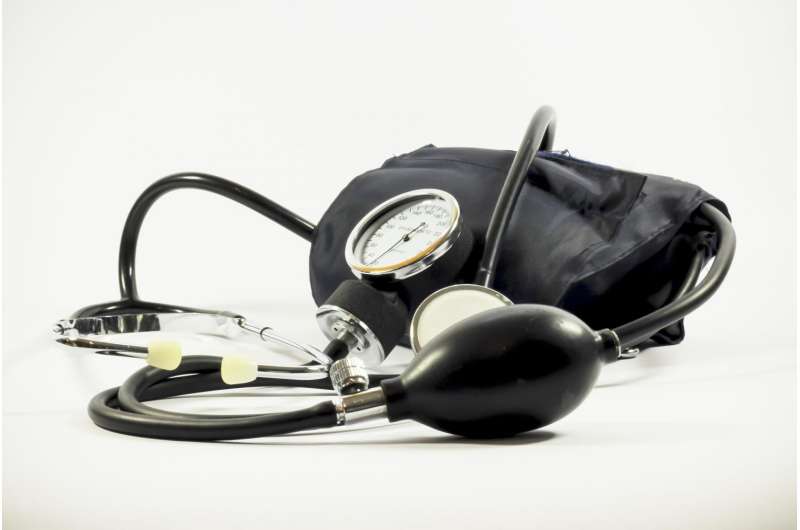This article has been reviewed according to Science X's editorial process and policies. Editors have highlighted the following attributes while ensuring the content's credibility:
fact-checked
trusted source
proofread
Two probiotics identified as promising hypertension treatments

An estimated 40% of the global adult population have high blood pressure, or hypertension, which puts people at risk of cardiovascular disease and other dangerous health conditions. Recent studies suggest that probiotics may offer a protective effect, but researchers have a limited understanding of why shaping the gut microbiota can regulate blood pressure.
A study published in mSystems adds two new strains to the list of potential antihypertensive probiotics.
In experiments on hypertensive mice, treatment with the two probiotics, Bifidobacterium lactis and Lactobacillus rhamnosus, returned blood pressure to normal levels. The researchers also tracked how those probiotics altered the animals' gut microbial mix over 16 weeks, identifying specific microbes and metabolic pathways that may help explain the protective effect.
"Accumulated evidence supports an antihypertensive effect of probiotics and probiotic fermented foods in both in vitro and in vivo experiments," said computational biologist Jun Li, Ph.D., at the City University of Hong Kong. Her team worked with that of microbiologist Zhihong Sun, Ph.D., at Inner Mongolia Agricultural University, on the study. "So we believed that the dietary intake of probiotic foods would well supplement traditional hypertension treatment."
Previous studies have connected the rising rates of hypertension worldwide to increasing consumption of sugar. It likely boosts blood pressure through many mechanisms—increased insulin resistance or salt retention, for example—but in recent years researchers have investigated sugar's effect on the gut microbiome, as well.
In the new study, the researchers tested the two probiotic strains on mice that developed high blood pressure after consuming water mixed with fructose. Over 16 weeks, they measured the animals' blood pressures every four weeks. They found that fructose-fed mice that received either probiotic showed significantly lower blood pressures than those fed a high fructose diet and not treated with probiotics.
In addition, the researchers found no difference between the blood pressure readings of fructose-fed mice that received probiotics and a control group of mice that only drank water. That suggests probiotic interventions would maintain blood pressure at normal levels, Li said.
The researchers used shotgun metagenomic sequencing to probe connections between the altered gut microbiota and the change in blood pressure. They found that a high-fructose diet in the mice led to an increase in Bacteroidetes and a decrease in Firmicutes bacteria; however, treatment with probiotics returned those populations to those found in the control group.
In addition, the analysis identified new microbial signatures associated with blood pressure: Increased levels of Lawsonia and Pyrolobus bacteria, and reduced levels of Alistipes and Alloprevotella, were associated with lower blood pressure.
The researchers are now planning a large clinical trial to see if the protective effect of probiotics extend to people with hypertension. "Probiotics present a promising avenue in preventive medicine," Sun said, "offering potential in regulating hypertension and reshaping our approach to cardiovascular health."
More information: mSystems (2023). journals.asm.org/doi/10.1128/msystems.00331-23



















